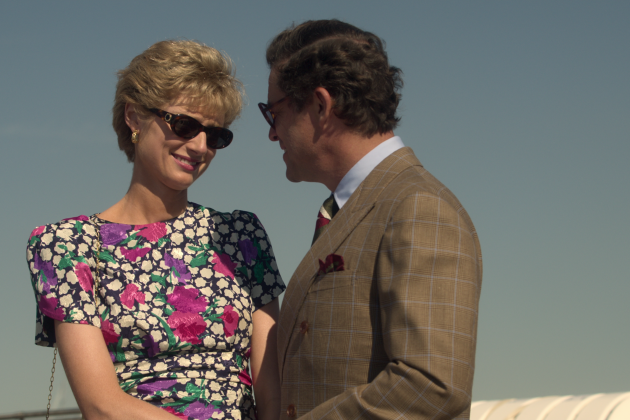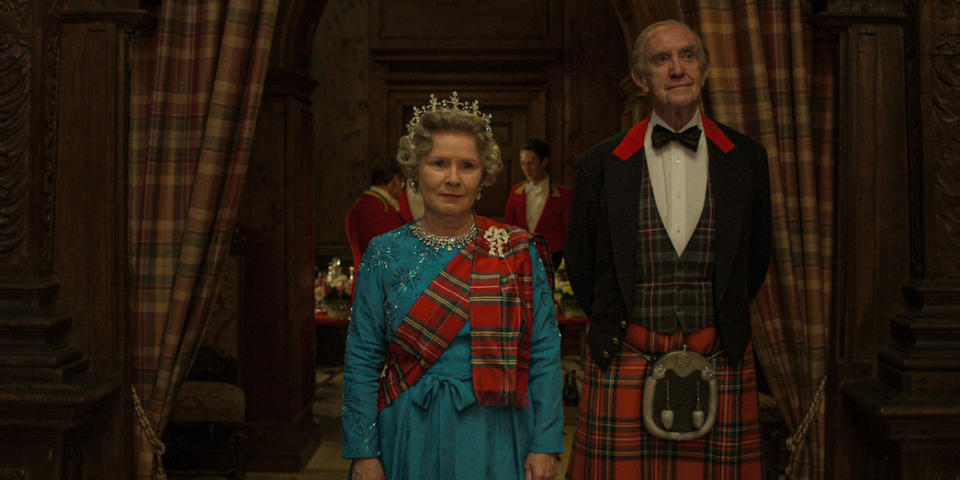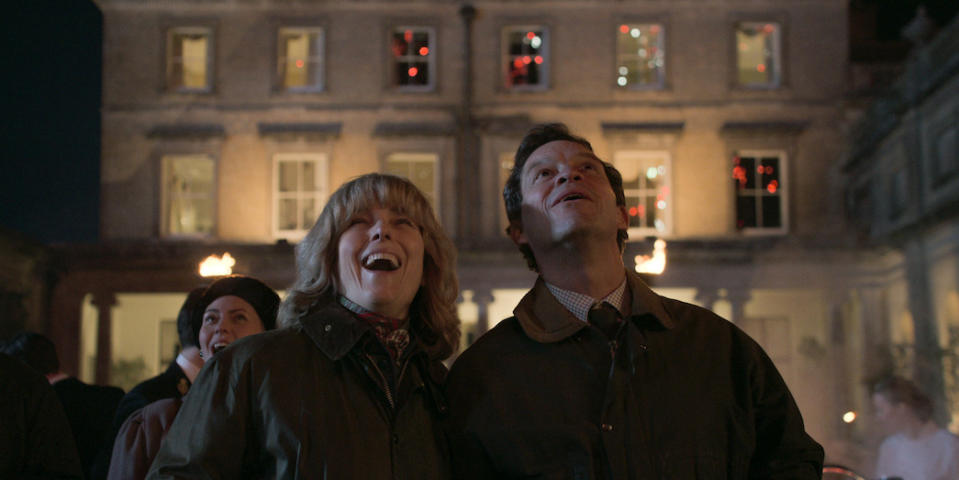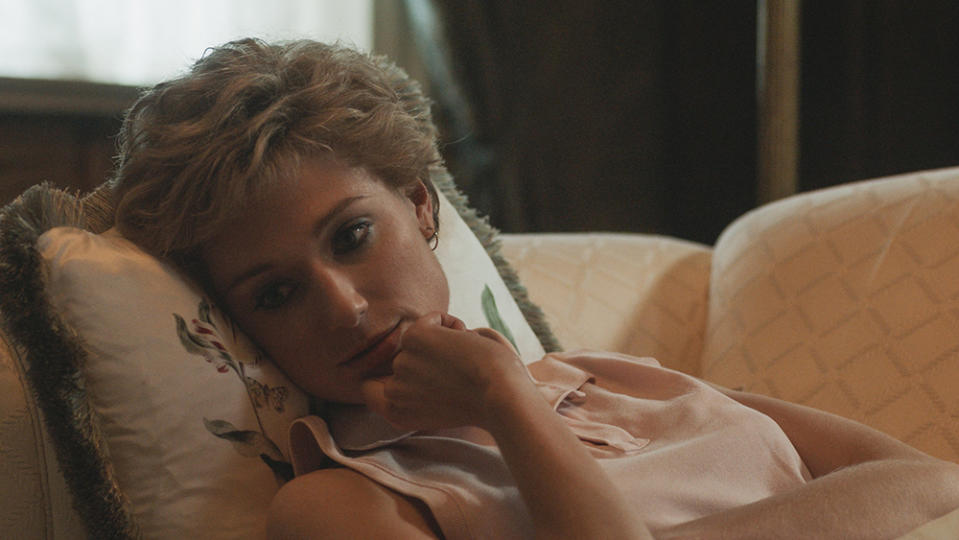All That Hysteria About ‘The Crown’ Disrespecting the Royal Family? It’s Much Ado About Nothing
- Oops!Something went wrong.Please try again later.
- Oops!Something went wrong.Please try again later.
- Oops!Something went wrong.Please try again later.
- Oops!Something went wrong.Please try again later.

Has so much controversy ever turned out to be so entirely unjustified than the hysteria surrounding the latest season of “The Crown”?
“Disrespectful,” “vicious” and “cruel” are just some of the adjectives used over the last few months to describe Season 5 – despite the fact that almost no-one had actually seen it until Wednesday (Nov. 9), when it finally hit Netflix.
More from Variety
Netflix Orders Series Adaptation of Judy Blume Novel 'Forever' From Mara Brock Akil
Luke Evans Voices 'Scrooge' in New Trailer for Netflix Animated Feature 'A Christmas Carol'
'Winx Club' Creator Shops $100 Million Film After Netflix Canceled 'Fate: The Winx Saga' (EXCLUSIVE)
And yet, when Season 5 finally debuted, viewers could see for themselves that, from the first moment Imelda Staunton (taking over the role of Queen Elizabeth II from Olivia Colman) appears in episode 1, co-creator and showrunner Peter Morgan portrays the British royal family with pathos, sensitivity and even tenderness.
In Staunton’s first on-screen appearance, the queen, now on the cusp of her eighth decade, is getting a medical check-up from a doctor who gently admonishes her for working too hard. “At the risk of sounding like a broken record, the less time you spend on your feet the better,” he tells her. Staunton merely replies: “Occupational hazard, I’m afraid.”

This is a woman, Morgan emphasizes throughout the season, who is still travelling from one damp end of the country to the other to cut ribbons, deliver speeches, shake hands and make small talk without complaint, well past the age of retirement.
But Morgan goes deeper still, showing us a side of the monarch she could never have revealed publicly, a side that humanizes her. We glimpse her disappointment over her children’s failed relationships, the tension with her nonagenarian mother (a living embodiment of the Edwardian era with its unyielding commitment to a stiff upper lip), the impossible contradiction of having to be both a queen and a sister – and a mother, and a wife and, frankly, a human – when her family are in need. (“How many times has Philip done something? Intervened when you couldn’t? Be strong when you couldn’t be? Be angry when you couldn’t be?” Princess Margaret, played by Lesley Manville, asks her). And, finally, the deep hurt – borne without anger or ego – she experiences when a newspaper runs a story dismissing her as “irrelevant” and “old.”
Nowhere is Morgan’s respect for her more palpable than in the episode “Annus Horribilis,” which features a dramatization of a real speech the queen gave in 1992 in which she publicly reflected on a year in which three of her children’s marriages fell apart and a fire ripped through Windsor Castle causing catastrophic damage. To top it off, she delivered the speech with a cold so severe she was on the verge of losing her voice.

Part of the premature criticism of “The Crown” undoubtedly stems from nerves over its premiere just two months after the queen’s death and King Charles III’s ascension to the throne. Especially since Season 5 deals with the early- to mid-1990s, when Charles’ popularity was at its lowest ebb in the wake of his affair with Camilla Parker Bowles being exposed, his messy divorce and, finally, Diana’s tragic death (the latter event is being saved for Season 6). Yet even here, where there is a veritable treasure trove of scandals to pick from, Morgan approaches the most excruciating details with respectful restraint.
Sure, we get a brief re-enactment of “Tampon-gate” (the wire-tapped phone calls in which Charles was recorded telling Camilla he wanted to be reincarnated as a tampon so he could live inside her) but the only figures to come out of the episode with their reputations trashed are the newspapers who published the transcript of the call (at the time the public were also reportedly invited to telephone a high cost phone line to hear the illicitly recorded tapes for themselves). If anything, Morgan invites the audience to sympathize with Charles and Camilla – ultimately a couple in love who can’t be together – for having endured such a gross invasion of privacy, the likes of which would never be tolerated today.
Much has also been made of a scene in which Charles (played by Dominic West) attempts to persuade Prime Minister John Major (played by Jonny Lee Miller) that he should support the queen’s abdication in favor of Charles’ early ascension to the throne, an encounter the real Major described as “a barrel-load of malicious nonsense.” But rather than the “Game of Thrones”-style betrayal it’s been portrayed as in the media, the scene is there to demonstrate a progressive Charles chafing against his more old-fashioned family.
In fact, throughout the season, Charles is repeatedly portrayed as the most down to earth member of the royals, backing the government’s decision to decommission the royal yacht rather than spend taxpayers’ money to refurbish it, and displaying a passion for the environment and alternative medicine.
Episode 5 even ends with a scene that could have come straight from a commercial for Charles’ beloved non-profit The Prince’s Trust. He is depicted giving an impassioned speech to a diverse group of young people before good-naturedly grooving on the dance floor (still in his bespoke tailored suit) with some breakdancers. The scene is interspersed with title cards that read: “Prince Charles founded The Prince’s Trust in 1975 to improve the lives of disadvantaged young people. Since then The Prince’s Trust has assisted one million young people to fulfil their potential.”

Even the spectre of Diana – brought to life with uncanny precision by Elizabeth Debicki – fails to demonize Charles. The couple are simply portrayed as two very different people who buckled under the global pressure for their marriage to succeed. When they go on a family vacation, Diana wants shopping and beaches; Charles is more interested in museums and archaeological digs. “Isn’t it extraordinary how two people’s understanding of fun could be so wholly different?” Charles asks a friend despondently, a sentiment no doubt many viewers will identify with.
And although portrayed with sensitivity, Diana ultimately comes across as unmoored, reckless and even selfish. She is estranged from her brother, inappropriately reliant on her young sons and when asked to send her biographer a list of friends he can interview she reels off her aromatherapist, astrologer and acupuncturist. In another scene, in which she is supposed to be comforting her acupuncturist, whose husband is undergoing a life-threatening operation, Diana ends up ogling the surgeon.
She is also portrayed as hell-bent on bringing down an institution that seemingly bears no ill-will towards her. “You’re wife to my eldest son, mother to my grandsons, and a valued senior member of this family,” the queen tells her. According to the show, it is Diana’s determination to remain an outsider — rather than the royal family’s intention to make her one — that sees the princess set on the tragic, irrevocable path that eventually leads to her death.
Of course, it’s no small irony that many of those same publications shouting loudest about showrunner Peter Morgan’s “disrespect” in fictionalizing the royal family on screen have never themselves been hesitant to publish the most intimate — and often humiliating — stories about the royals.
By contrast, “The Crown” is positively chaste. Unlike Showtime’s “The Tudors,” there are no sex scenes. (Even Tampon-gate takes place with Charles and Camilla fully clothed.) The most risqué moment in the series comes in the first season where a young Prince Philip (played by Matt Smith) makes a blink-and-you’ll-miss-it pun about his wife getting on her knees. Philip’s rumored real-life indiscretions are almost entirely overlooked until Season 5, where he is shown chastely bonding with his godson’s wife over carriage-driving after her young daughter tragically dies of cancer. As for his frequent real-life “gaffes” (which included, at the age of 90, telling a young woman “I would get arrested if I unzipped that dress!” during a royal walkabout) these have been scrubbed from the record entirely.
And fans of “The Crown” hoping to see a dramatization of Prince Andrew’s friendship with convicted paedophile Jeffrey Epstein and sex trafficker Ghislaine Maxwell — which was ongoing throughout the 1990s — will be sorely disappointed. Season 5 doesn’t even feature so much as a Pizza Express dough ball. (When asked if Epstein and Maxwell were going to be portrayed in “The Crown,” a source categorically told Variety: “Absolutely not.”)
Far from being a covert attempt to bring down the monarchy, “The Crown” is actually a love letter to the royal family from a man who has spent his life eulogizing them, not only via his Netflix show but also his 2006 feature film “The Queen” and his 2013 West End play “The Audience,” about Her Majesty’s weekly meetings with Britain’s prime ministers.
“Peter Morgan has obviously got a huge affection for this family having done the film ‘The Queen’ then ‘The Audience,’ then ‘The Crown,’” Staunton pointed out when she spoke to Variety last month. “I don’t think he would have bothered to keep going if he wasn’t quite emotionally, I think, involved with it.”
Best of Variety
Sign up for Variety’s Newsletter. For the latest news, follow us on Facebook, Twitter, and Instagram.

